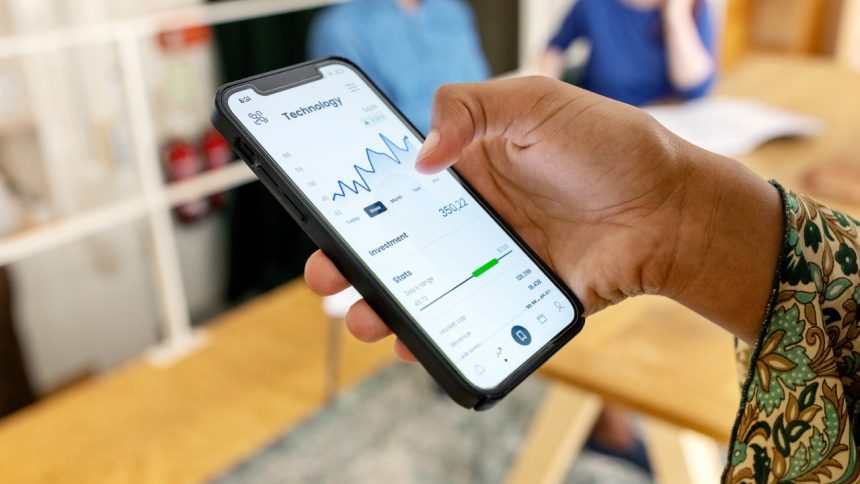Our writers and editors used an in-house natural language generation platform to assist with portions of this article, allowing them to focus on adding information that is uniquely helpful. The article was reviewed, fact-checked and edited by our editorial staff prior to publication.
Key takeaways
- A money market account is a type of deposit account that combines features of a savings account and checking account and may be a good option for keeping savings that you might need access to.
- Advantages of money market accounts can include the potential for high yields, liquidity and federal insurance for your funds. They may come with the ability to pay bills, write checks and make debit card purchases as well.
- Disadvantages of money market accounts may include minimum balance requirements, monthly fees and transaction limits. Also, you might be able to find better yields with other deposit accounts.
A money market account is a deposit account that earns interest. You can find money market accounts, also known as MMAs, at banks and credit unions. These accounts combine features of a savings account and a checking account.
Similar to a savings account, these accounts earn interest. You can often find a decent annual percentage yield (APY), but there may be a limit to how many withdrawals you can make per month.
Similar to a checking account, you may be able to write checks with an MMA or make purchases and withdrawals with a debit card. While it’s possible for a savings account to offer these features, it’s rare. It’s more common for money market accounts to offer them.
It’s important to note that money market accounts are different from money market funds. Money market funds, which are also known as money market mutual funds, are an investing option offered by banks, brokerages and mutual fund companies. Money market funds, unlike money market accounts, aren’t federally insured or regulated. While you may earn a higher return with money market funds, you could lose part of your principal investment since they’re investment accounts.
Money market account features
Money market accounts are somewhere between a checking and savings account, providing APYs on par with savings accounts with the flexibility of a checking account. As such, they may have:
- Check-writing and debit/ATM card access
- Monthly fees and minimum deposit requirements
- Online bill pay
- Transaction limits
That last bullet is especially important. A bank’s transaction limit will tell you how many times per month you can withdraw money out of the account before incurring a fee. And if you surpass the transaction limit too often, some banks may even convert your MMA into a checking account or close your account altogether.
Advantages of money market accounts
Perks of money market accounts often include competitive APYs, easier access to your cash and federal protection for your funds in case of a bank or credit union failure.
MMAs earn interest
Because MMAs earn interest, they’re a great tool to grow your money while still maintaining access to it. As of November 18, 2024, the average money market account rate is currently 0.43 percent, according to Bankrate data. Make sure to shop around, though. The best money market rates are significantly higher than the average, with some over 4 percent.
You have easy access to cash
You don’t have to jump through hoops to withdraw the money from a money market account when you need it.
Many money market accounts come with debit cards for ATM access and check-writing privileges. There could be a limit of six withdrawals per statement period, though.
Money is protected by federal insurance
At federally insured institutions, you don’t have to worry about the safety of the funds in a money market account, up to a certain amount. Provided the bank or credit union has insurance from the Federal Deposit Insurance Corp. (FDIC) or National Credit Union Administration (NCUA), respectively, up to $250,000 per depositor and per account ownership type is protected even if the institution fails.
You can check to see if your credit union or bank has insurance by looking for your institution using the FDIC Bank Find tool or on the NCUA site. Or you can call the FDIC’s phone number (877-275-3342) to confirm your bank’s status. You can also call your bank or credit union and ask a customer service representative.
Disadvantages of money market accounts
Better rates may be available elsewhere
While the best money market accounts offer some decent earning potential, it’s important to note that you might be able to find higher interest rates with other savings products, though you might have to make other trade-offs.
For example, you could earn just as much, if not more, in interest with a high-yield savings account, but you likely wouldn’t get checks or a debit card to spend your funds.
You could also potentially earn more with a high-yield certificate of deposit but CDs have a time commitment: You agree to lock up your funds for a certain time period in exchange for a guaranteed APY.
Minimum balance requirements to earn a high rate
Most money market accounts have fairly low minimum balance requirements to open an account — as little as $0, in some cases. However, to earn the interest rate that grabbed your attention, you might need a significant deposit. Some banks and credit unions have a $100,000 minimum to score their best rates.
Banks may charge monthly fees
It pays to research monthly service fees when you’re shopping for a money market account. Some will waive the fee if you maintain a certain minimum balance or set up a direct deposit into the account. Finding a money market account that charges no monthly fees — or makes them easy to avoid — helps ensure such fees won’t eat away at your balance every month.
What should you open a money market account for?
The potential safety, liquidity and yield of money market accounts makes them great candidates for a few key pieces of your personal finance portfolio.
- Your emergency fund: The importance of having money set away for those unplanned, unwanted expenses — a medical emergency, a major car repair or a job loss, for example — cannot be overstated. A money market account makes those funds easily accessible if you need them while keeping them separate from your checking account.
- Your next big expense: Whether you’re saving for a wedding or a vacation, a money market account gives you a good place to park those funds. Plus, you can take advantage of the interest rate to help give your savings a bump and get you closer to the finish line a bit faster.
- Your tax payments: For independent contractors and freelance workers, setting money aside for taxes can be tricky. With a money market account, you can keep the money you need to pay taxes, based on your quarterly tax estimates, separate from your spending money.
While online high-yield savings accounts and CDs are also options for storing money away for different goals, a money market account might be a better option when you need more frequent access to that money. If you’re saving for a particular goal, such as buying a car, a money market account will allow you to write a check from the account when it comes time to use those funds.
Money market accounts vs. savings accounts
Unlike some money markets, savings accounts generally don’t provide the ability to pay bills, write checks and make debit card purchases. Those who aren’t looking for such capabilities may prefer a standard savings account instead.
“Both money market and savings accounts are FDIC-insured, making them safe places to store funds. Both allow you to earn interest on your deposits and provide liquidity that can be beneficial for expenses such as real estate costs, for example,” says Zev Freidus, president of ZFC Real Estate.
To make your decision between a money market account and a savings account, consider how important check-writing capabilities or debit card access are to you. From there, compare APYs as well as monthly, and other, fees.
Bottom line
Money market accounts offer many advantages, including the ability to pay bills, write checks and make debit card purchases. However, there are also factors to be aware of, such as minimum balance requirements and possible monthly fees. Consider the pros and cons of these accounts, as well as how you might want to access your savings, so you can make the best decision.
Read the full article here














